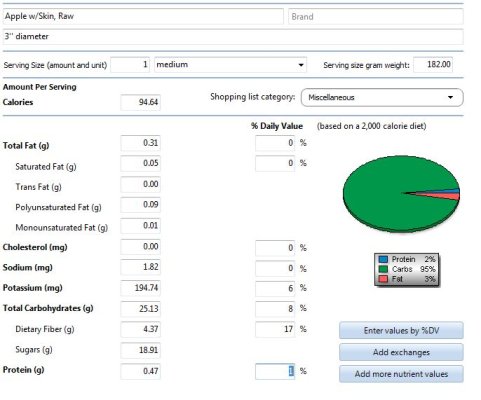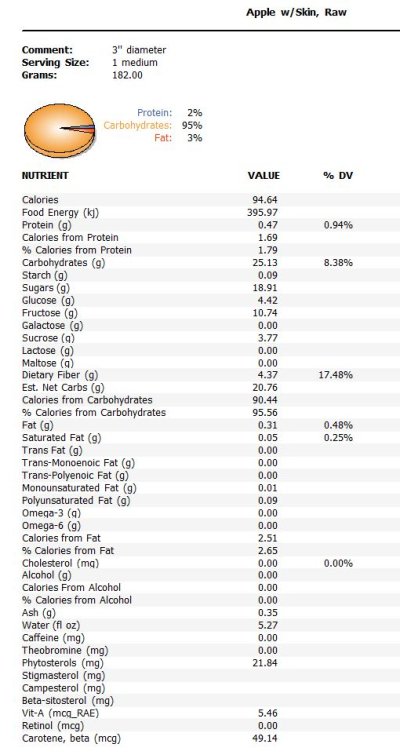I agree with every single word. Especially this:
My percentages for fat/protein/carbs are just estimates, and they will of course vary somewhat by individual.
I should have not come across as so "hard & fast" -- should have better said that fat % should be in the 65% to 80% range.
Just to explain a little further:
About seven years ago, I was diagnosed with Atrial Fibrillation. Since this was the first time in my life that anything serious healthwise had happened, I panicked. I weighed around 210 at 5'10½". The first thing I did was go on a exercise regimen -- walking a couple three miles a day, etc. And even though my doctor said my weight was "in line" and my blood work showed "normal" results, particularly the lipids which were very low. And because I was active and felt good about it, I should not change my diet.
Well, I didn't feel so good about my weight... particularly when looking into a mirror. So I jumped into the "weight loss" frenzy -- reading everything I could. Finally, deciding that the USDA and the medical community should know more than anyone else, I went with the mainstream -- low fat/high carb. Long story short:
Two years later I weighed 237 pounds and was hungry all the time. My A1C had gone from 5.1 to 6.1. Clearly, this diet was not for me. So I went with a high fat/close to zero carb regimin. The first thing I found was a lack of appetite -- in fact, it was easy to forget to eat. (Well, that was after I gave up the exercise routine.) The weight was dropping off me in huge amounts. Again, long story short: six months later I weighed 180 pounds and have remained at that for three years now. My A1C is back down to the low 5s and my cholesteral/triglycerides remains in the "very good" (my Cardiologist's words) range.
FWIW, the first thing I discovered that over the years of eating the wrong foods (particularly grains), I had destroyed my body's ability to process glucose -- yeah, this is the definition of Diabetes but remember this was a self-diagnosis. Anyway, it was easy to then think of sugar as a poison. The next step was to discover how sugar hides itself in the English language. Any word that ends in "ose" is sugar -- Glocose, lactose, fructose, etc. I found, for instance, that the Banana I had eaten every morning for over 35 years was almost pure sugar. The bowl of cereal that had replaced the Eggs and Bacon was a double whammy -- Milk (lactose) and cereal (glucose) are pure sugar. No wonder I gained weight.
And I was hungry because my body was starving. Essentially it goes like this: The body considers four things food; Fat, Protein, Carbohydrates, and Alcohol. It doesn't, however, consider them as equals. The body's preference is in this order:
1. Alcohol -- will process alcohol before all other food. (this the cause of Cirrosis.) Unfortunately, although it is preferred, it has no nutritional value. (damn it.)
2. Fat -- This is what your body runs on.
3. Protein -- Needed to rebuild -- muscle, particularly.
4. Carbohydrates -- has no known benefit. ("There are essential Amino Acids (Protein) and Essential Fatty Acids but there are no necessary Carbohydrates.")
Since Carbohydrates have no real food value, they are stored away for "times of starvation" -- internally (viscerally) first (shows up as the "beer belly") and then whereever it can. This is why a person is always hungry when on a high carb diet.
Anyway, in a nutshell, (and certainly an incomplete explanation) of where my thinking is today.



